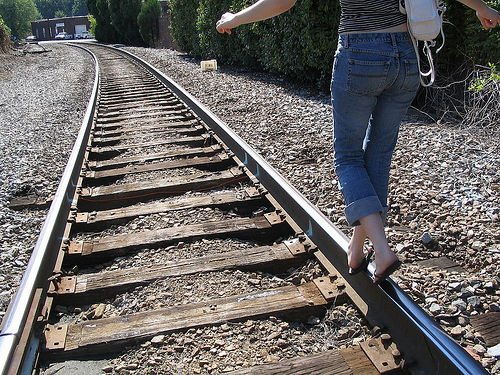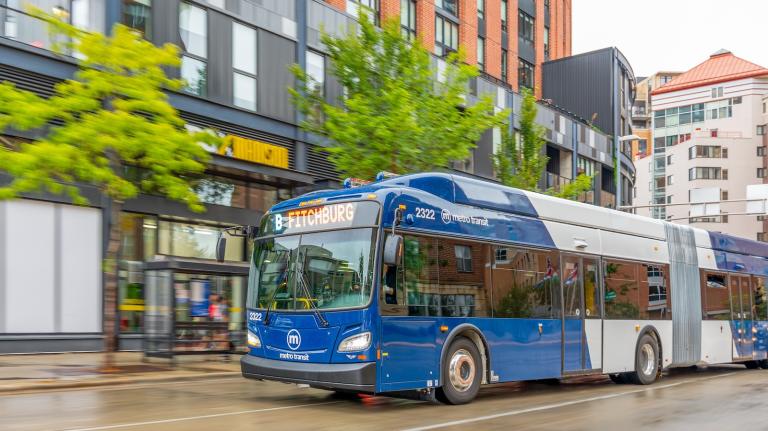Is U.S. transportation going off the rails?Photo: FullyFunctnlPhilCross-posted from Natural Resources Defense Council.
The House Transportation and Infrastructure Committee is about to unveil a new six-year transportation reauthorization bill that may cut highway and mass transit funding by one-third.
That mindless approach to cutting spending represents myopia at its worst. By doing so, the committee is failing to see the big picture on transportation. In order to keep America moving forward, we need to chart a new course — not slam on the brakes.
This shortsighted bill would hamstring our nation’s transportation network. As it is, our transportation infrastructure, once the envy of the world, is crumbling. Failure to invest in our aging roads, bridges, and railways puts our nation’s economic recovery, and our ability to compete in the global economy, at risk.
A new transportation bill should focus on fixing what’s broken, reducing the oil use in our transportation sector, and making smart, targeted use of our limited taxpayer funds.
We need to guide investment with a strong “fix it first” policy. This would ensure that critical funds are directed to essential repair work, instead of building bridges to nowhere.
We need to address our crippling oil addiction, which saps our economy by sending billions of dollars to unfriendly nations and leaves American consumers vulnerable to gas price spikes. Setting a national oil savings objective will help break our dependence on oil and create more affordable transportation options for all Americans.
Finally, we can generate the most bang for taxpayer bucks by making efficient, performance-based investments in transportation. Underinvesting in transportation is actually costing us money. As it is, Americans are spending the equivalent of a full work week each year stuck in traffic, resulting in losses of $1 billion in wasted time and fuel. Smart investments, perhaps through an infrastructure bank, would maximize returns on limited public funds. According to the Apollo Alliance, a $40 billion investment in public transit and intercity rail would create 3.7 million jobs and boost GDP by $60 billion.
The Senate is working on its own two-year version of a transportation reauthorization, which appears to be charting a better way forward than the House bill. A two-year bill has the political advantage of a smaller price tag, and could still address these critical issues and put America on the path to a cleaner, more prosperous, and secure future.




